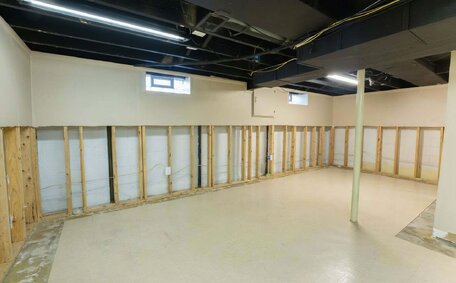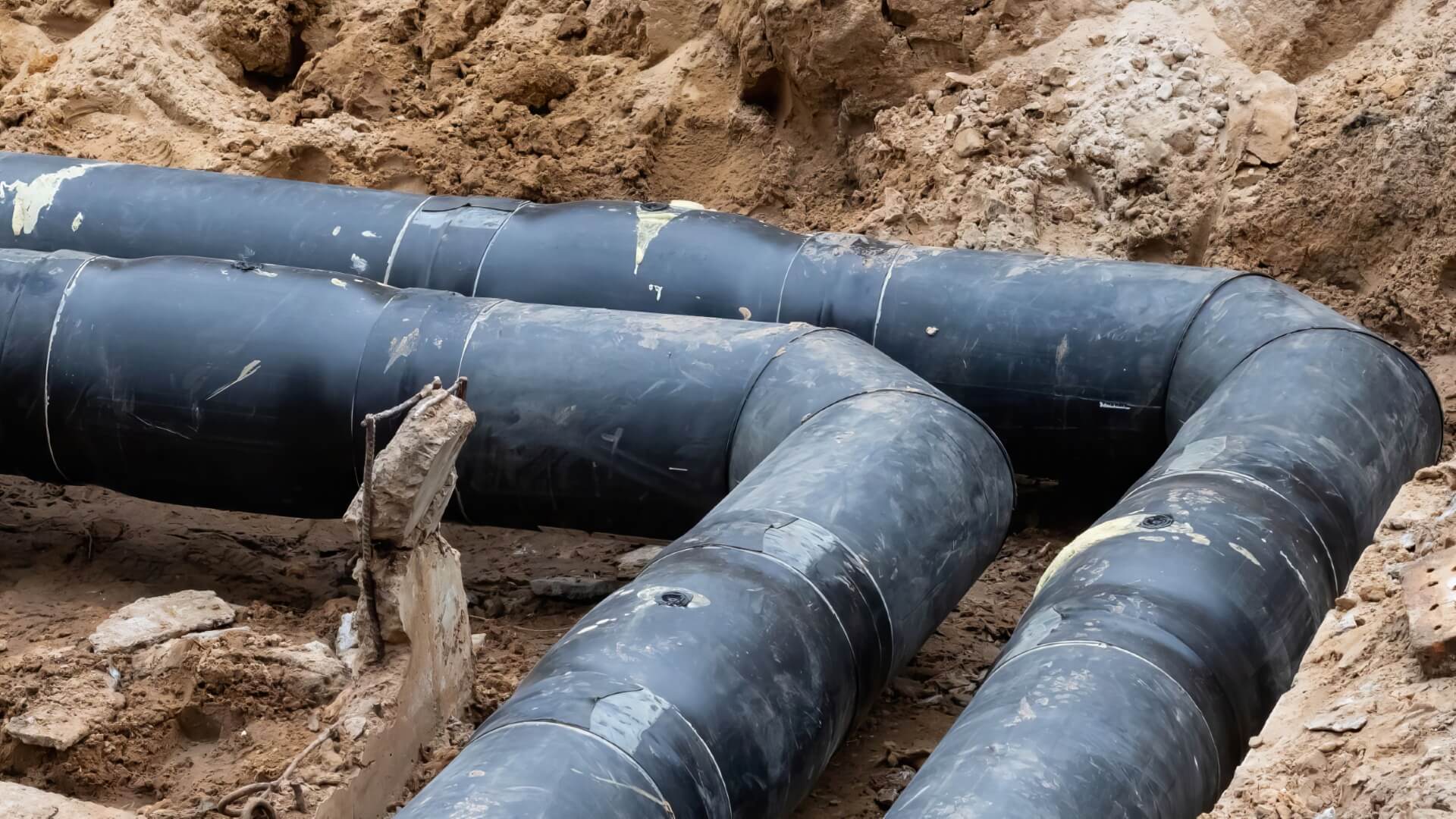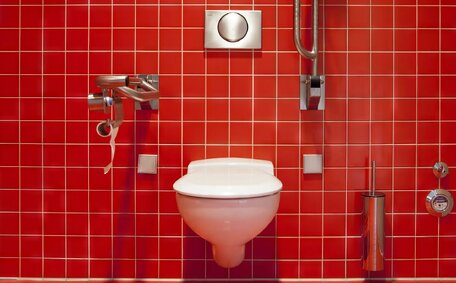Understanding Natural Gas
Natural gas primarily comprises methane, a non-toxic substance. The 'rotten egg’ smell, originating from the added odorant mercaptan, typically indicates a natural gas leak.
Due to its lighter-than-air quality, leaked natural gas ascends, which can dilute the concentration of pollutants in the air. Although non-toxic, for safety concerning air pollution, leaks must be promptly addressed to prevent gas buildup in confined spaces that might displace breathable oxygen. Routine inspections of your natural gas appliances are crucial to identify faults early and avert potential leaks.
Benefits of Natural Gas
Natural gas stands out as an efficient energy source for homes and businesses, with several benefits:
- Burning natural gas produces less carbon dioxide and pollutants compared to oil or coal, rendering it the cleanest fossil fuel.
- Modern gas heaters are highly efficient, converting up to 95% of the natural gas used into heat, thereby maximizing energy efficiency.
- Reliability - Efficient burning of gases, including natural gas and gas lpg, in infrastructure ensures a continuous and safe gas supply across vast distribution networks.
- Cost - natural gas prices have stayed relatively low and stable compared to electricity.
- Abundance - there are substantial reserves of natural gas, including lp gas formats, globally which are expanding with innovative extraction methods.
- Proper appliance installation, maintenance, and ventilation are key to ensuring that natural gas usage enhances indoor air quality and poses minimal health risks.
- Convenience - with natural gas heating, it powers various appliances for cooking, including gas stoves, cooktops, ovens, hot water systems, and home heaters.
Ultimately, measures taken to ensure your safety with natural gas make it a flexible, effective, and progressively eco-friendly energy choice for your home and business requisites.
Risks and Safety Concerns
While utilised natural gas offers numerous advantages, it also presents dangers natural gas entails if not managed correctly. Some key risks include:
- Gas leaks - A leak can ensue from malfunctioning devices, impaired piping, or inadequate installation processes. Gas is combustible so leaks pose explosion risks, especially if gas accumulates in confined spaces.
- Fires - Natural gas, when unburned, can cause ignition from a spark or open flame, potentially creating hazardous air conditions with elevated particulate matter. This can lead to fires that damage property or cause injuries in some cases.
- Carbon monoxide poisoning - Faulty gas appliances can release carbon monoxide, a colourless, odourless gas that is toxic. Exposure causes flu-like symptoms or even death at high concentrations.
- Asphyxiation - Leaking gas can displace breathable oxygen in the air. In severe cases this oxygen deficiency can lead to suffocation.
Statistics show that natural gas prioritises health safety when diligently managed with methods to detect and prevent off gas incidents, consistently causing fewer deaths and property damage than other common fuel sources. However, it still requires diligent safety steps:
- Regular maintenance and servicing by a licensed gasfitter, as outlined on our site, are fundamental to ensuring safety with natural gas devices.
- The installation of gas and carbon monoxide detectors
- Ventilation strategies to ensure a constant supply of fresh air indoors, thus preventing gas accumulation
- Emergency preparedness involves recognizing potential leak points in appliances and pipelines, learning to identify gas leaks, especially at excavation sites, and knowing to dial before dig when dealing with main gas valves.
Understanding hazards and following safety advice from natural gas experts on actions to take before digging can significantly reduce associated risks.
Detecting Gas Leaks
Critical methods exist for pinpointing a potential natural gas leak in your home:
- Smell - Natural gas has a strong odour similar to rotten eggs due to added mercaptan. Detecting this odour might indicate an ongoing natural gas leak.
- Sound - Listen for an unusual hissing noise near gas appliances or pipes. This sound could signify escaping gas.
- Sight - Observe for signs like dying vegetation or bubbling water patches near gas equipment or lines, as these can signal a subsurface gas leak.
- Equipment - Consider installing gas detectors for added security. These devices sound an alarm when perilous levels of gas are detected, particularly around natural gas appliances.
If you still smell gas despite not identifying a visible leak, extinguish all flames and avoid ignition sources. Avoid using any phones or electrical switches and do not generate sparks.
It is important to know the locations of your gas meter and main shutoff valve for quick response when needed.
Schedule annual inspections by licensed gas technicians to keep your gas system and appliances safe and leak-free.
Responding to Gas Leaks
If you detect the distinctive rotten egg smell, hear hissing from pipes, or see dying vegetation indicating a gas leak, contacting your utility provider for immediate action is vital. Here are the steps to take:
- Evacuate everyone from the area of the leak and move to a safe distance upwind.
- Call 000 from outside the home and notify emergency services.
- Inform the dispatcher of the precise location, including cross streets, and mention that it’s a gas leak.
- Do not re-enter the building or area until emergency crews give the all-clear.
In extreme circumstances where gas is rapidly accumulating indoors, locate your main shutoff valve outside and rotate it 90 degrees to close if it’s safe to do so. Always contact qualified gas technicians to inspect leaks and perform necessary repairs before the gas off valve is turned or system operation is restored.
Understanding leak response procedures and ensuring regular professional servicing for your home’s gas appliances is vital for safe natural gas usage.
Maintaining Gas Appliances
Consistent maintenance by a skilled technician is essential for the safe operation of your gas appliances. It is recommended homeowners use natural gas safely by having all gas appliances serviced annually by qualified technicians.
Between professional check-ups, you can undertake simple maintenance tasks:
- Visually inspect your appliance’s gas flame, including the pilot light, monthly - the flame should be steady and blue with no yellow tipping.
- Clean around appliances regularly to prevent dust or lint build-up which can obstruct airflow.
- Inspect pipes and connections for any signs of deterioration like rust or cracks.
- Test carbon monoxide detectors to ensure proper function.
- Check appliance exhaust vents for blockages from nests, leaves etc.
Document any decrease in appliance performance, strange smells or other abnormalities and contact your licenced gas fitter for assessment right away. Do not attempt repairs yourself, and remember to turn off gas supplies before any work begins.
Carbon Monoxide Dangers
Carbon monoxide (CO) is an odourless, colourless gas that can be lethal in high concentrations. It originates from the incomplete combustion process that occurs while burning natural gas. Poorly ventilated or malfunctioning gas appliances can increase carbon monoxide and nitrogen dioxide levels, resulting in harmful indoor emissions.
CO is hazardous due to its invisibility and odourlessness, potentially causing severe health effects, including flu-like symptoms, dizziness, confusion, and even death, with the most risk posed to infants, the elderly, pregnant women, and those with pre-existing health conditions.
To safeguard your wellbeing, learn more about CO alarms by checking out our video, and install them on every level of your residence, notably near sleeping areas. Look for symptoms like headaches, drowsiness and nausea. If alarms sound or anyone feels ill, get outside immediately and call emergency services.
Have all gas appliances checked annually and ensure to dial before dig and repair any issues right away. Proper installation, maintenance and ventilation precautions prevent CO leaks. Understand the risks and protect yourself and loved ones from gas poisoning.
Environmental Impact
Although burning natural gas contributes to climate change, it releases significantly less carbon dioxide than coal (50-60% less) and oil (30% less), as per reports from PSE Healthy Energy.
This makes natural gas a useful transition fuel, contributing more than its share to moving away from traditional fossil fuels as we shift towards renewable energy sources like wind and solar. By reducing reliance on high-emissions coal and oil, using natural gas can lower overall greenhouse gas output.
There are also moves towards renewable natural gas (RNG) produced from organic wastes and agricultural resources. This carbon-neutral biogas can directly replace conventional natural gas for further emissions reductions.
By effectively managing and maintaining appliances, households and businesses can reduce their carbon footprint while transitioning to cleaner energy with natural gas.
Advancements in Regulations
Recent advancements in natural gas safety, governed by regulations and standards from the gas association, invite you to call your attention to enhancing public wellbeing:
- Stricter codes and compliance procedures for new use natural gas appliance installations.
- Expanded licencing and training requirements for gas fitters to ensure competence.
- Introduction of risk-based asset management requirements for gas network operators.
- Mandates for more frequent leak surveys along distribution pipelines.
- Upgrades to Australian standards for materials, design and testing applied in gas infrastructure.
Such improvements have enhanced safety across the gas industry. In collaboration with efforts from institutions such as the chan school public health, home gas leaks have decreased by 75% over 20 years.
Gas network incidents fell by 44% between 2009-2019 even as gas usage increased.
Ongoing investment in workforce skills, risk management, network maintenance and safety innovation ensure natural gas supplies remain secure and reliable into the future.
The Future of Natural Gas
Natural gas looks set to continue playing a major role in energy supplies into the future. Ongoing improvements in extraction technologies are unlocking vast new gas reserves globally that can meet energy needs for decades to come.
The adoption of renewable natural gas (RNG), produced from organic waste, is increasing. As this carbon-neutral biofuel replaces traditional natural gas, home emissions will decline.
Smart home technologies that integrate gas with electricity networks optimise energy use, with management systems adjusting gas flows for heating and hot water based on real-time renewable energy availability and pricing. Safety is also enhanced through continuous gas leak monitoring and automated shutdown functionalities.
This section details how we source your natural gas, contributing to broader integration of renewable energy. As an adaptable fuel source for traditional power plants, Gas-fired generators can also ramp up or down rapidly to complement intermittent renewable supplies from wind and solar. This backup capacity can retire higher-emissions coal power over the longer term.
Through sustaining reliable energy supplies during the transition to cleaner alternatives, leveraging smart technologies, integrating renewable fuels and enabling wider renewable electricity adoption, natural gas has an important function in delivering more sustainable, lower emission energy solutions over the coming decades.






